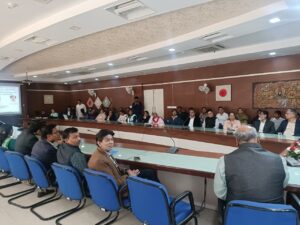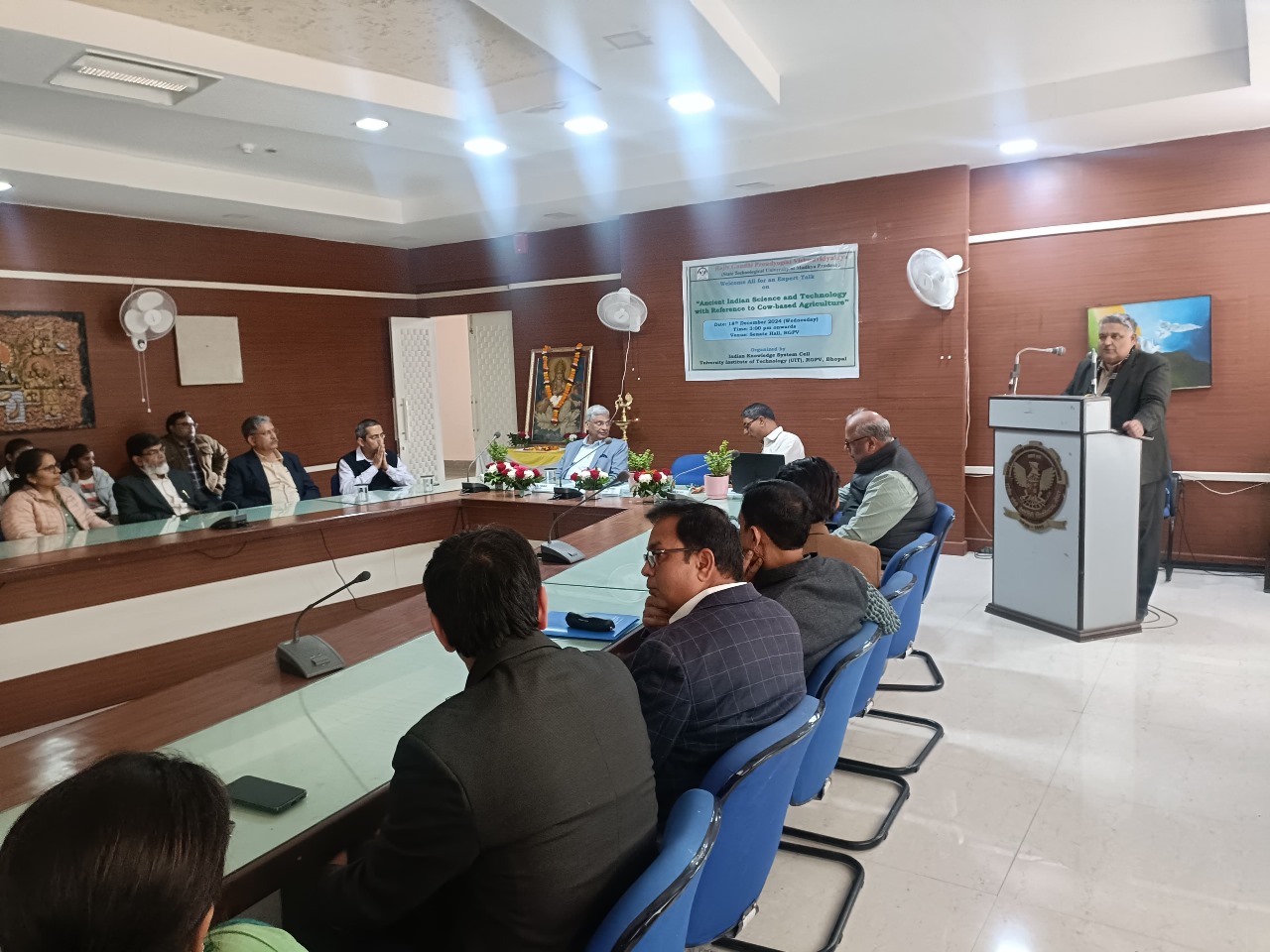CNN Central News & Network–ITDC India Epress/ITDC News Bhopal: Lecture on “Ancient Indian Science and Technology in the Context of Cow-Based Agriculture”
The Indian Knowledge Tradition Cell, UIT RGPV, organized a lecture on the topic “Ancient Indian Science and Technology in the Context of Cow-Based Agriculture” at the University Senate Hall.
The Chief Guest was Karunesh Kumar Shukla, Director, MANIT Bhopal, and the keynote speaker was K.N. Raghavan, a motivational speaker and renowned social worker from Chennai. The event was presided over by University Vice-Chancellor Rajeev Kumar Tripathi.
The event began with the ceremonial offering of flowers before the image of Goddess Saraswati. Vice-Chancellor Rajeev Kumar Tripathi addressed the gathering, stating that India’s ancient knowledge system has always been profound. While the modern world is discussing sustainable development and organizing seminars for environmental conservation, the solutions to all such issues are embedded in India’s knowledge and traditions. Indian society has always revered nature, with practices like tree worship and cow protection being integral to its culture.
Keynote Address by Karunesh Kumar Shukla
The Chief Guest, Director of MANIT Bhopal, Karunesh Kumar Shukla, highlighted the importance of blending traditional Indian knowledge with modern technology to find solutions for conserving nature. He noted the global demand for organic farming, with societies worldwide revisiting traditional practices for agriculture and environmental preservation.

Insights by K.N. Raghavan
Renowned social activist K.N. Raghavan, who has trained over 75,000 farmers across India in cow-based organic farming, emphasized the economic significance of agriculture and cottage industries in India’s history. He explained that 15,000 years ago, the Rigveda mentioned profound agricultural philosophies. Ancient sages like Vishwamitra, Yajnavalkya, Parashara, and others provided advanced insights into farming techniques, tools, and philosophy in their scriptures.
Raghavan elaborated that India is called the “Land of Nectar,” as the consumption of milk, curd, ghee, and jaggery—collectively known as Panchamrit—has been an essential part of its culture. He urged people to embrace cow-rearing and recognize the importance of cows in shaping India’s DNA and its ancient civilization.
Environmental and Health Benefits
Raghavan highlighted how two fundamental issues for humanity—hunger and disease—can be addressed through natural resources like food, water, air, and the use of Panchagavya (five cow-based products). The ancient King Prithu pioneered agricultural methods, including seed purification. Texts like the Krishi Sukta discuss detoxifying grains and preserving seeds using cow urine.
He concluded by emphasizing that ancient Indian sages advocated the use of pure food for pure thoughts, which leads to a pure mind. This concept, rooted in agriculture and cow-based practices, strengthens human development.
The event concluded with Shashiranjan Akela as the host and a vote of thanks by Suresh Singh Kushwaha.
#CowBasedAgriculture #SustainableFarming #IndianTradition #OrganicFarming







